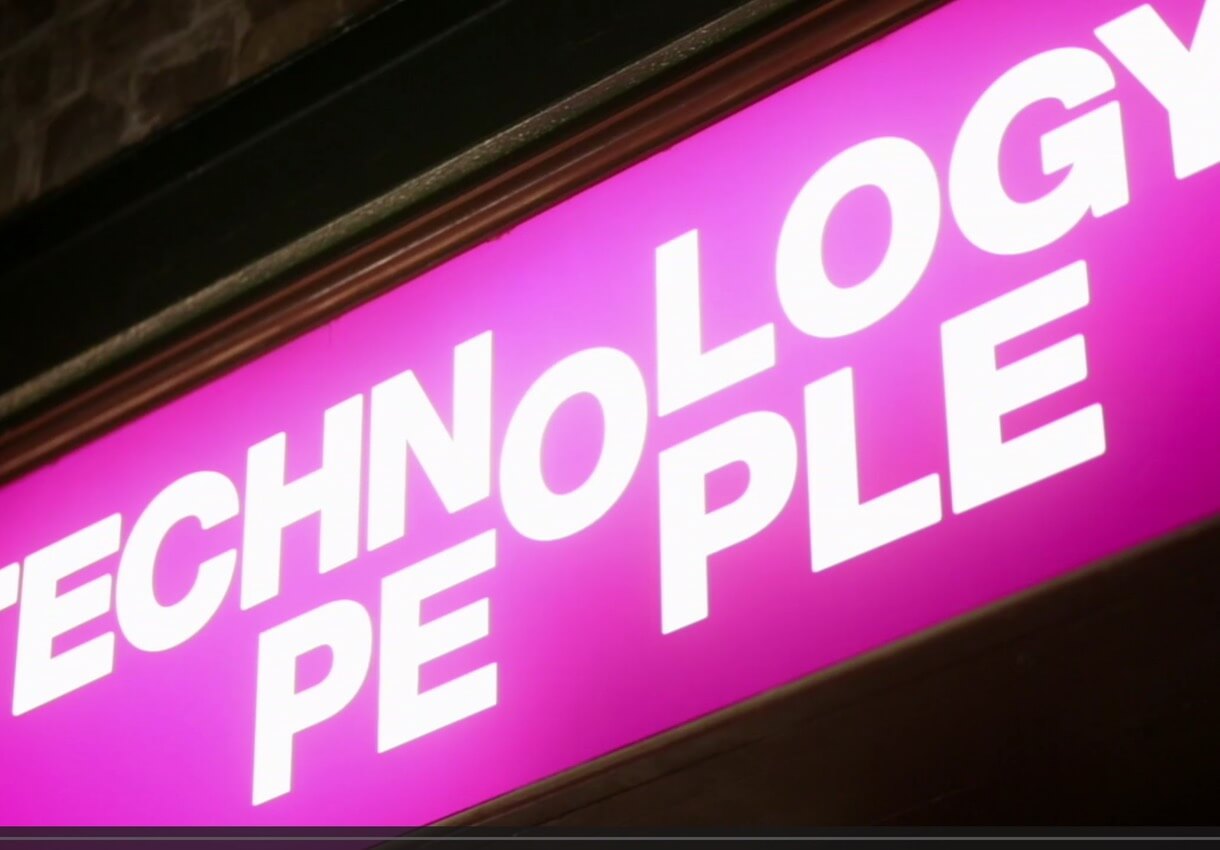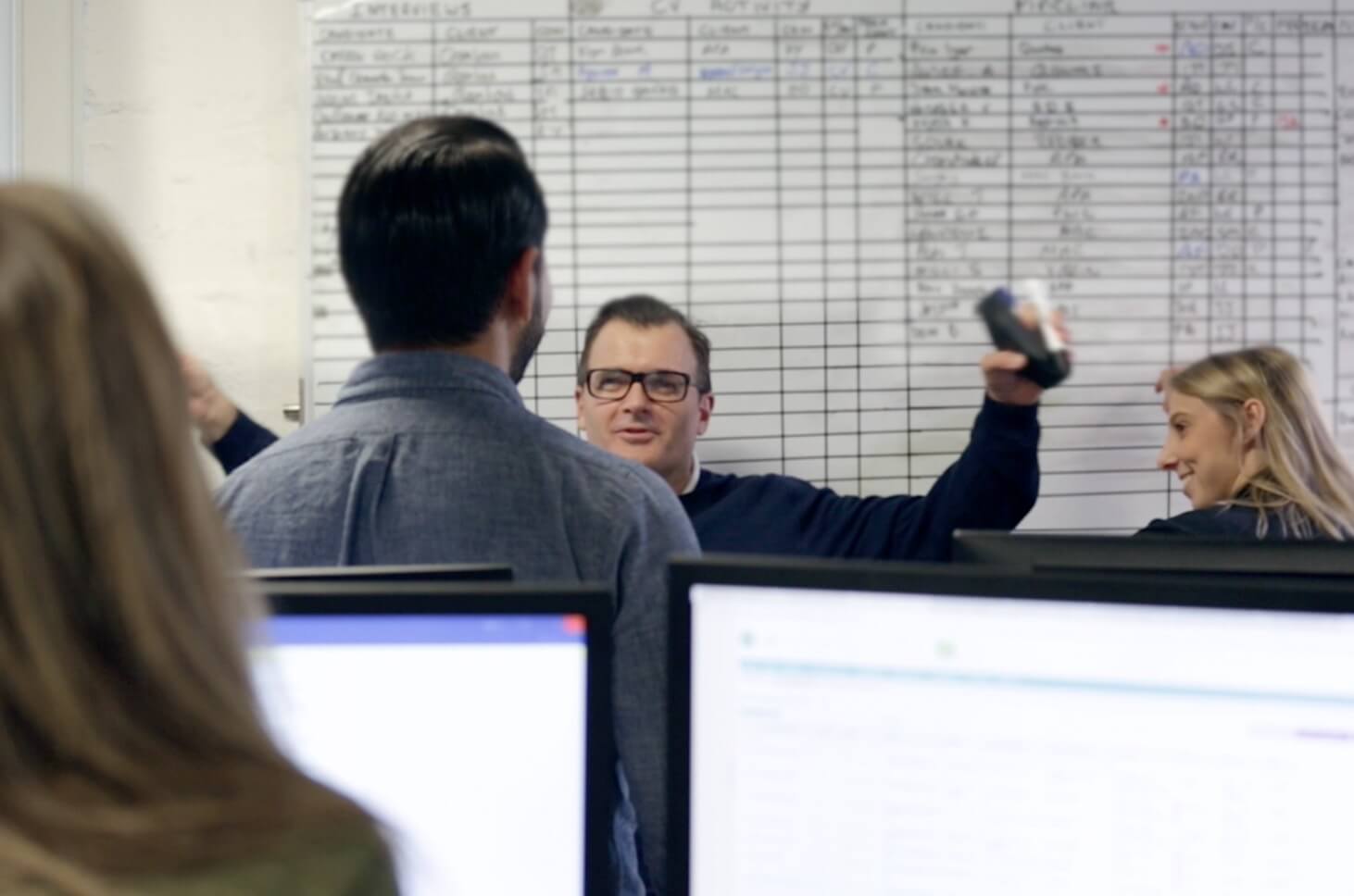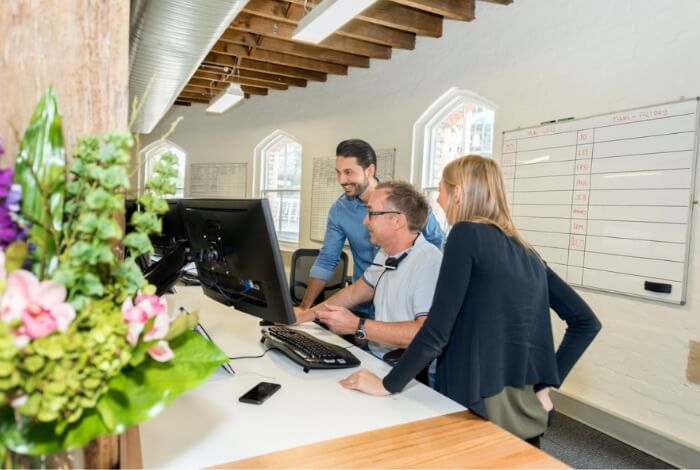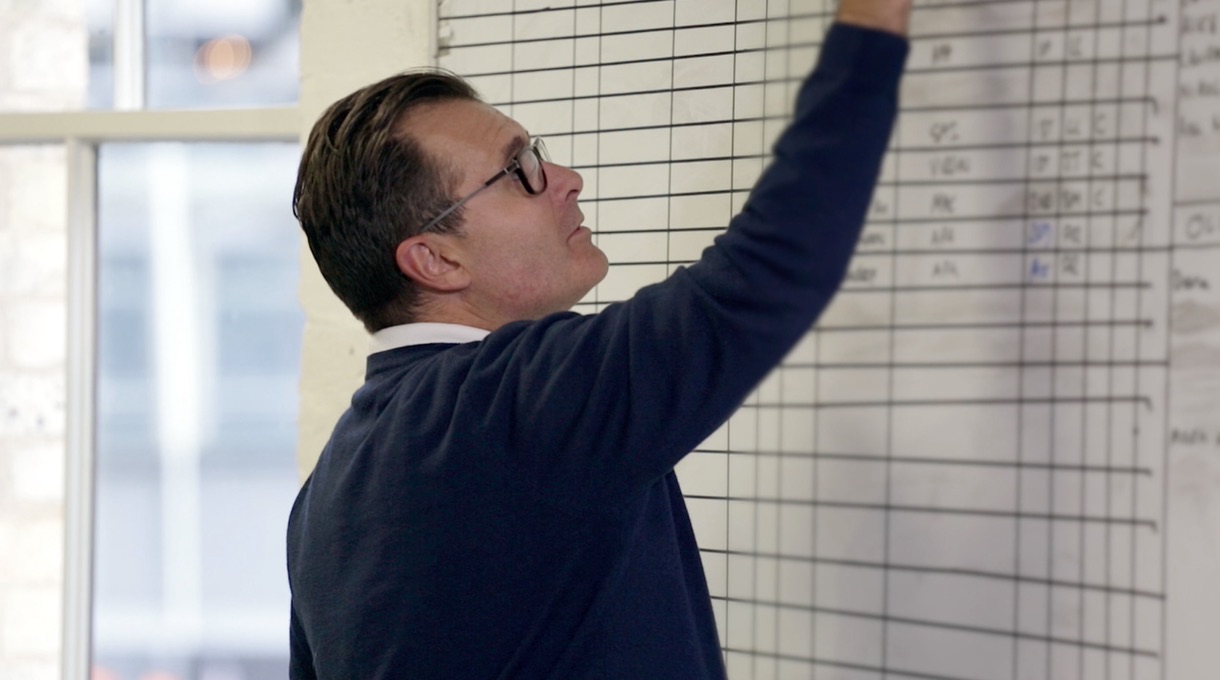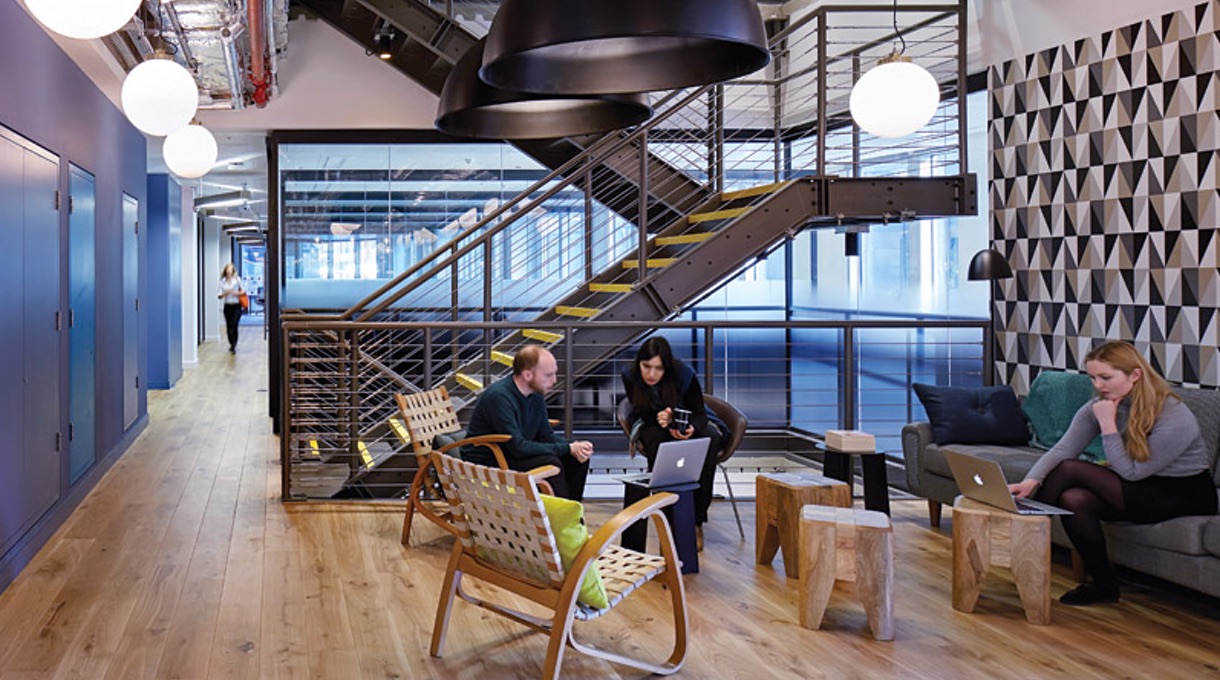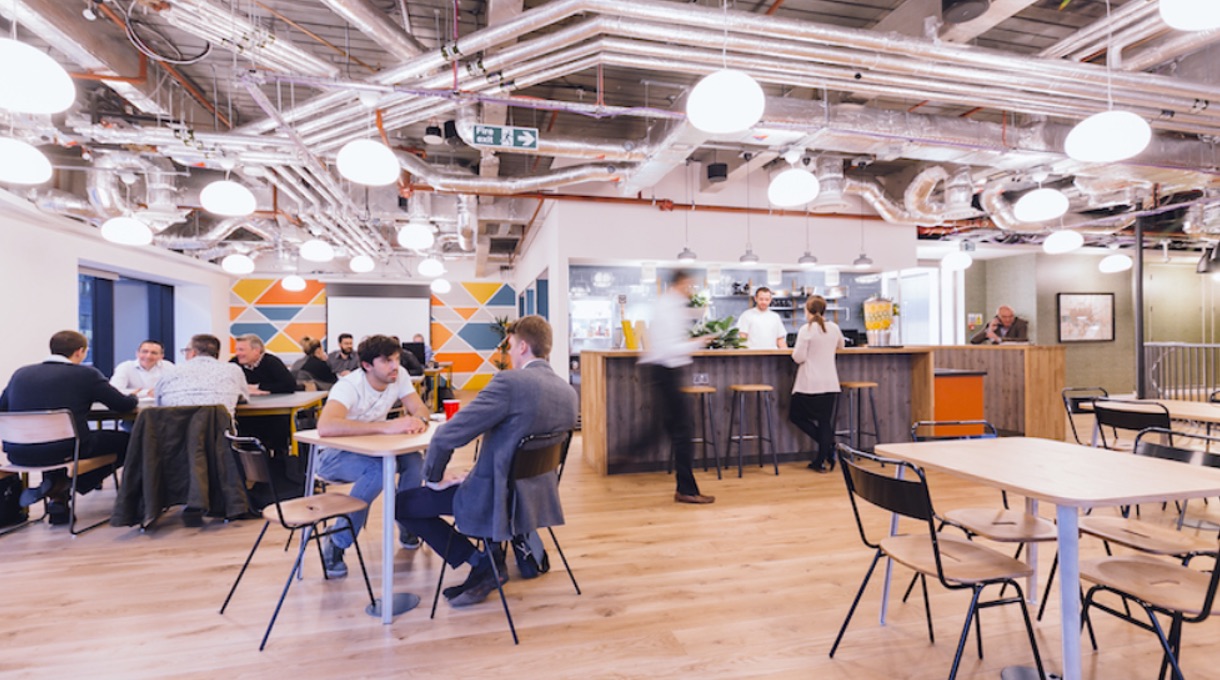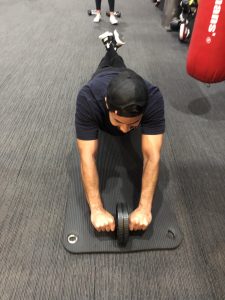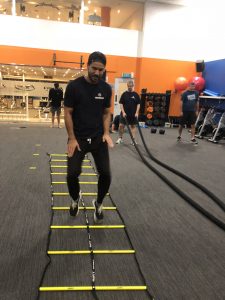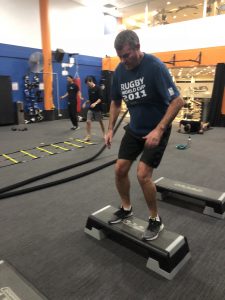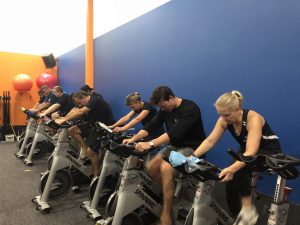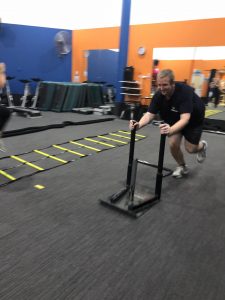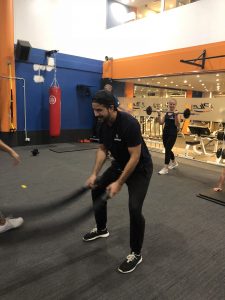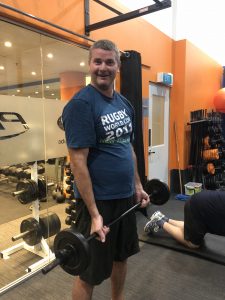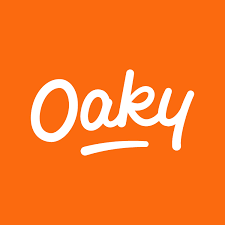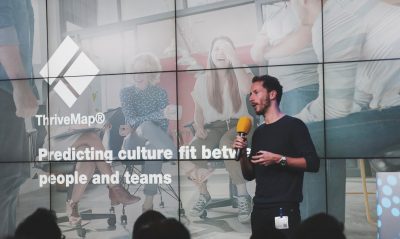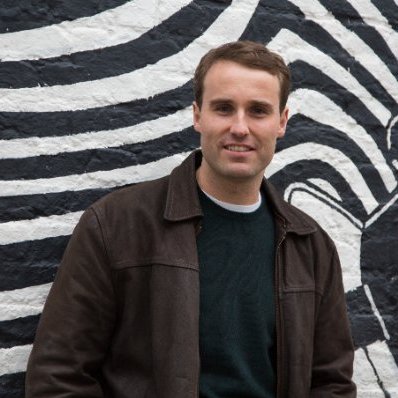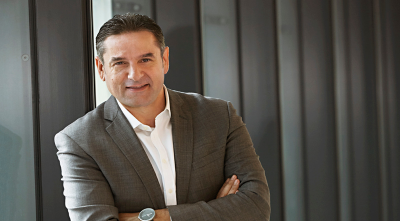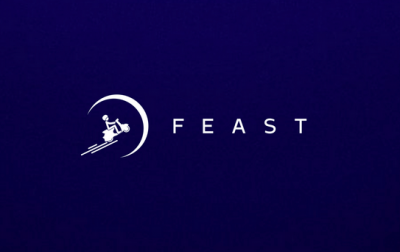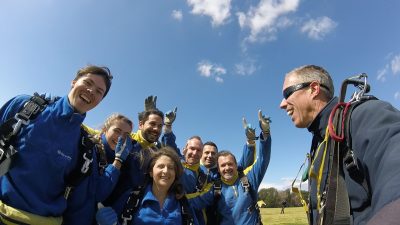
Find jobs and contacts in your specialist domain.
JOBS
Trending
Trusted By
We are working with some of the worlds best brands.
Latest
Strong Leadership. Great results.
Pixie is a quickly growing community of independent businesses where people can explore, pay and earn rewards at, all through their smartphone.
From fashion boutiques, coffee shops, butchers, to artisan traders at street markets, Pixie believes that where, how and why you spend your time and money matters; It helps to build connections. It brings people back in to communities to discover a local world full of interesting & unique independent businesses & people to experience and connect to.
We chatted to Greg from Pixie & this is what we found :-
Delighted to be able to introduce our first video version of our “Five Minutes with a Founder” series. Today we chatted to Erik from Oaky !

I was just speaking to a friend of mine and she asked me what I was doing, I said I was writing something for International Women’s Day, she said “Women’s Day is like any other day, because we are all equal”. It’s a great sentiment and with the #metoo and #timesup campaigns, the light being shed on BBC’s gender pay gap we are at least moving towards a day where Women’s Day won’t need to be here, but there is still a long way to go.
I have written several pieces on Women in Tech now and it was always from the angle of trying to shed some more light on the reality of the situation having worked in the hiring of Tech Talent for 10 years, and also having a few lofty ideas of how we can think of solutions and not just stating the problem. The feedback has been interesting, you get some great responses from tech companies sending a pic of their offices and there being an even split of girls and guys or others saying they’ve just hired two female engineers and they have hit the ground running and leaving the guys in their wake! You do also get other responses which are little more hostile, which I do understand as it is a very sensitive subject. Some didn’t like my use of the wording “Light hearted…” when describing modern Tech environments as being more appealing to work in than yesteryear. Again I understand that, but we have to be careful that when discussing how we can tackle a fair spread of male and female talent in Tech that we don’t put too many egg shells down.
I was listening to a podcast interview with Richard Branson the other day and when asked how Virgin were doing with women in senior positions throughout the company and he proudly said there was great diversity, that many of his CEO’s were women and they thoroughly deserved their positions. When asked why, he mentioned that its good to get a mix and that sometimes women can deal with the emotional side of the business better and the guys can be more emotionless, he then started back tracking and saying that he better not say something that would get him in trouble! “I’m in hot water here”. We have to let people speak the truths of their experiences and findings without crushing them.
Then there was one client who read what I had sent them, and felt I needed to know more about it, the subject, its roots, its history and got me to watch Debugging the Gender Gap, a Documentary Film from the Tribeca Film Festival. And that was the most helpful thing they could have done! To that client I thank you, and I encourage all who have any connection to the Tech World to watch this, it is International Women’s Day after all!!
Here is the trailer and you can also watch on Amazon Prime:
https://www.youtube.com/watch?v=8VVb6M8pTvE
Piet
This week we continued our series of “5 Mins with a Founder” and interviewed Chris from ThriveMap, a software tool that measures culture fit between people and teams. To learn more about them & how they are doing some really innovative things head to https://thrivemap.io/
How old were you when you first tried a venture?
In retrospect, I’ve always been fairly entrepreneurial. When I was 8, my brother and I set up a family newspaper called ‘Ferndale Press’, it had a readership of about 15 extended family members, then when I was 11 I started making bracelets from bits of coloured thread and sold them in the family restaurant. I’d pray on unsuspecting diners and guilt them into buying them (they were for charity). It wasn’t until I was 25 that I moved to London to set up a new office for a recruitment company when my entrepreneurial spark got rekindled.
Do you have any role models?
I have plenty but they’re siloed in particular areas. Balance is hard to achieve and I wouldn’t say any of them are to be admired in all areas of life. Take someone like Elon Musk for example, he’s a huge inspiration business-wise but he’s not someone I’d look to for work/life balance.
Who has taught you the most?
I have. I’ve taught myself most things in life. I never had a stand out teacher or mentor. Sure, I’ve worked with smart people and learned a lot from my parents, but I believe it’s your own responsibility to self-educate.
Which one failure did you learn most from?
It’s not a failure as such but when my dad passed away I learned a lot about myself. What I was willing to tolerate, what I should be doing with my time and who I should be spending it with. Hardships help you grow as a human being. Being a younger sibling I’d never really had to step up like that before and I regretted having never thought about the benefits of taking more responsibility.There are two attractive things about suffering in the long term. One is that it can make you accept the world the way it is. The other thing is that it can change you in an extreme way.
If a plaque had to go up in one coffee shop/restaurant/bar saying your company was founded here where would it be?
It would be etched into the dashboard of my brother’s car. After our mum passed away a few years ago, we were talking about going back to work after the funeral, I told him I’d had a business idea I’d like to explore. There were four of us in the car and the consensus was, just go for it. That’s when I resolved to start up.
What is the best thing about working at ThriveMap?
We’re in a really interesting space. Company culture and cultural fit is fast becoming a topic of interest for CEOs as they realise that it’s just as important as having the right business strategy. Not only that, but with advances in technology and research, culture is becoming something they can leverage to generate incredible long-term results. Having a tool that helps them pull that lever is really exciting.
Do you think there is a gender Imbalance in Tech?
Well if you look at the numbers then yes there’s clearly an imbalance. There are many different perspectives on the why that I’d rather not go into. However, in order to reach greater equality, we have to ensure that from an early age a child has every opportunity at their disposal to choose what career they’d like to pursue.
Again if you want to know more about ThriveMap head to https://thrivemap.io/
Based in London, with a global reach, Chapter Three offer a 360 degree approach to content creation, social media management and online amplification using influencer marketing and paid media strategies. Chapter Three are based cross the luxury lifestyle sector – working with brands ranging from Nike to MTV, through to Gymbox, 1Rebel, BXR London, MNKY HSE, Farmacy and Bala Baya, amongst many others.
We managed to get 5 mins to chat with Louise Rumball who told us more…
How old where you when you first tried a venture?
I qualified as a lawyer when I was about 25 and decided that if I was going to continue as a corporate lawyer, that I was going to go and do it in Dubai. Whilst I was given two months off between jobs, I started my own health and fitness blog where I met the founders of 1Rebel, one of London’s first luxury boutique gyms. Fast-forward two months later and I was accepting a job offer to start a social media agency with them and I definitely wasn’t on a plane to Dubai!
Do you have any role models?
My Dad has taught me everything that there is to know about building something for yourself from nothing. He lost his Father when he was young and I rely on him heavily so I am very grateful for the support that he provides me but more importantly, am in admiration that he was able to do it without having that Father figure to rely on. I also have 3 very influential role models in the form of mentors that run some of the UK’s biggest advertising and marketing agencies. They have definitely helped as aspirational figures in my career path.
Who has taught you the most?
Controversially, I would probably say myself. I have figured everything out along the way on my own. It definitely hasn’t been easy, but I am incredibly proud that I have got to where I have today.
Which one failure did you learn most from?
When my first and biggest client decided that they didn’t need my services anymore, I nearly had a heart attack. I was thrown out into the City to fend for myself and was absolutely petrified. That being said, it was the best thing that ever happened to me as I opened up my client base to all sorts of brands that I was restricted to by working with them initially.
If a plaque had to go up in one coffee shop/restaurant/bar saying Chapter-Three was founded here where would it be?
We have moved office a couple of times over the last year or two but all of our growth and memories have come from Labs Worldwide, the most incredible co-working and office space in the middle of Holborn. In the space of 3 months we have gone from a 1 person lounge access to a 10 person fixed office and we have had some of the most amazing memories building the business here together.
What is the best thing about working at Chapter-Three?
The team and the clients and the office. I come to the most amazing workspace every day and don’t feel like i’m working. The passion, the ambition and the happiness is unparalleled. My team are like family and to top that, we get to work with some of the most incredible brands on creating their content and social strategies.
Do you think there is a gender Imbalance in Tech?
One of our biggest clients is a Fiit-tech start up and they have a fairly even spread of males and females within their team. I think things are changing with Tech, just as I think that they should, but there is definitely still a male-skew in most cases.

When we launched the Technology People business in 2011 we launched a suite of vertical brands to cover all areas of the Technology market. Each brand was designed to specialise in a vertical sector of the marketplace with a dedicated team of specialists to assist. These brands included :-
PMO People
ERP People
BI People
Oracle People
Salesforce People
Digital People
Integration People
SAP People
As we have grown as a business all of these brands have been consolidated under the Technology People business, its simpler for our customers to engage with a single entity. All of these specialities still exist within our business, our recruiters still specialise in these technologies, just less brands and less logo’s for customers to understand.
If you have any questions please contact our directors on +61 2 9037 0300.

Following on from our chat with the Founder of Feast last week we managed to grab 5 mins with Edward East from Billion Dollar Boy. This is what we found…
Tell us about Billion Dollar Boy
Billion Dollar Boy is a next generation influencer media business. We combine creativity, technology and a global network of influencers to publish content and drive engagement across social media at scale to increase your ROI.
How old where you when you first tried a venture?
18, I started a website called Colour it Green to help people sponsor chunks of the rainforest. It was inspired by the incredibly original, brilliant and successful Million Dollar Homepage. We raised over £18,500 for the charity Rainforest Concern through the site while I was in charge (6 months) and then I handed it over to them to run full time.
Do you have any role models?
I am very fortunate to have access to advice and guidance from many successful businessmen. It’s important to bare in mind opinions from many different sources when making decisions, consider their opinions’ positives and negatives and based off that analysis you can make an informed and calculated decision.
Who has taught you the most?
When it comes to business my father has been there to support me every step of the way and without his support it would have been impossible to grow Billion Dollar Boy.
Which one failure did you learn most from?
Failure can and should be considered progress towards a better outcome. So, rather than identifying one particular failure, I would prefer to say that I am learning all the time and improving.
If a plaque had to go up in one coffee shop/restaurant/bar saying Billion Dollar Boy was founded here where would it be?
Kings Road Cafe, Beverly Hills.
What is the best thing about working at Billion Dollar Boy?
The team, growth and challenge of growth.
London or Sydney?
London!!
An inspirational thought leader in Information Technology and Financial Services Industries, Chief Executive Officer of Liberty IT Consulting Group, John Dimitropoulos, joins our editor for an interview this week. Here he talks about what makes him tick and what he looks for when recruiting team members for a project.
Q: You’ve been heavily involved in Banking Transformation Projects. What do you see as the keys to success for such large and complex projects?
First and foremost, transformation is typically driven by the need to change the way a business operates.
Organisations usually place most emphasis on digitising or modernising their technology and start to worry about how they operate as a business later. The business needs to be part of the transformation. What I mean by that is, transformation doesn’t happen to the business, it happens with them.
Then comes the need for bold and committed-to-success executive sponsorship. The senior leadership team’s willingness to embrace change, make courageous decisions and empower team members to excel; this will trickle down to every member of the organisation and in the project.
Setting the sliders for the project early and carefully is another factor. These need to be determined at the very beginning of any project; how is the work going to be prioritised and what is driving the need for change? Is it increase in revenue, quality of customer service, customer experience, optimisation of operational costs, keeping up or beating the competition in leading edge technologies? This is one of the hardest things to decide on, but it needs to be done at the very beginning with the executive officer present.
Q: What are the most important lessons you’ve learned from being involved in such large projects?
The biggest lessons I’ve learned come by association with very complex transformational programs.
My influences include some very talented leaders who I cannot name here, who led large-scale banking programs over the last two decades. There have been some important lessons I learned, and I am happy to share with your readers.
- Executive sponsorship (from the CEO and the Senior Leadership Team) is a must; without it don’t bother.
- The Program Schedule must to be treated with the greatest respect, especially in the first 12 months. A great leader once said, “you lose programs in the first 12 months if you don’t manage schedule with the utmost respect”.
- Business transformation is a pull, not a push. The business needs to be actively driving the change from their end and cannot afford to have change done to their operations by IT or project managers. Earn their respect and buy-in early through small, incremental value-add solutions.
- Build a diverse and resilient core team to take with you in your long journey. Partner with the right service providers who have a proven success record and understand your industry; you will need their experience, capacity and support in the boardroom
- Manage change diligently; have the courage and conviction to say “no” to your business and your leader as “no” is not just an acceptable answer, it is a necessity if you wish to keep things on track.
- Look after yourself. Your health, your family and your career. I’ve been touched by sickness and loss (in my teams) in the past. If you are healthy and well you will always excel and outperform.
Q: Which attributes or talents have been most valuable to have in your team in order to see the project through?
These programs are large, complex, expensive, multi-site and tend to attract talent from within and from a multitude of external organisations. Both permanent staff and contractors require skills, diversity and the right attitude. Re-use and grow internal talent where possible; you need to cultivate and retain IP for the future of your organisation. But it’s not enough. No organisation can scale on its own to deliver these programs. Create talent diversity through lasting partnerships with expert external suppliers. As team sizes grow rapidly, it is important to strike a good balance between existing business, technology experts and new blood. Expect and plan for multiple role rotations and attrition over the life of the project.
Q: What usually drives team members to willingly follow a project leader?
The willingness from everyone involved to embrace the transformation is the biggest human factor. We don’t walk into a project and tell people “this is what’s going to happen”. We spend a great deal of time working with them to discuss the vision and purpose of the program first. We then work with them to determine the right business solution and how technology can enable it.
When team members understand the vision they are inspired to contribute to the success of the program.
Open and timely communication from the leaders creates a trust-based environment and makes sure the team is engaged and driven by a common purpose. Being a compassionate leader and expressing good work behaviours themselves, leaders will attract a team of right people.
A leader needs to also recognise the importance of a work/life balance. The mental and physical wellbeing of team members is very important. Things like ensuring they have proper breaks and offering flexible work arrangements helps to not only build a great team, but ensures their support for the life of the project.
Q: What do you look for when you’re hiring people for a project team?
Personally, when I build teams, my approach is that you can always train people for technical skills, but you cannot buy attitude. Having expert skills will only get you so far. Cultural compatibility to the organisations values and the project’s work ethics is important. They also need to be willing to learn new skills (which is actually a big bonus for their career) and also willing to share their knowledge with others so the whole project benefits.
Q: Tell me about your company, Liberty IT.
We established Liberty IT Consulting Group in 2016 with a small but great group of highly talented and experienced Information Technology professionals. We are part of a management consulting and recruitment partner ecosystem which collaborates well to create world class consulting solutions. Our clients operate across a diverse set of industries. That said, our core competencies are in the Financial Services Industry. Although our clientele includes some of Australia’s most recognised brands, we are also servicing the needs of a number of smaller clients. We have built the company on agile, “start-up” like principles. We are all very enthusiastic, passionate professionals with high drive and energy. Our flexible engagement model makes business with us easy and straightforward. We currently attract some of the best talent in the market.
Q: Why is your relationship with Tech People so important?
In our early days, being the new kids on the block, we knew that our combined expertise and experience would only work if we got our business operations and strategic alliances spot on. With so many businesses in the same IT space, we saw a unique opportunity to align ourselves with Tech People as their longevity is testament to their business’ culture. Our values of experience, quality and ethics are also perfectly aligned. Ours is a true partnership – we’re not trying to outdo each other; we complement each other. We’ve gained a lot from Tech People and we believe they have too.
Tech People know IT recruitment like the back of their hand, and so we look to them for scale expansion and supply of the right people for our large projects. By truly working together, strategically and operationally, our business has been able to grow from the get go and with the right people from the very beginning.
You can find out more about John and his team here: http://www.libertyit.com.au/ and you can find opportunities to join the Liberty IT group on their careers page http://www.libertyit.com.au/careers/ and by signing up to our newsletter: https://www.technologypeople.co.uk/newsletter/
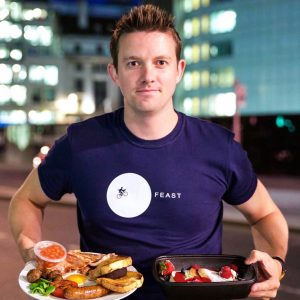
We were lucky enough to manage to grab 5 mins with Si Pusey, from Feast. Feast is London’s Late Night Delivery Service. Operating from 7pm to 4am Feast partners the best 24 hour restaurants to give people a choice of quality food, where previously there was none. This is what he said :-
How old where you when you first tried a venture? 20
Do you have any role models? Robert Nadler (Nadler Hotels) and David Taylor (founder of Balans). Both started with very little but had very clear visions of what they wanted to achieve. Robert was a Soho policeman, David opened a sandwich bar. Both have gone onto create really big successful brands proving you can do anything you want if you put your mind to it.
Who has taught you the most? Regarding any personal and career ambitions I have it has to be my dad. Otherwise travel and living abroad has really opened my eyes to ideas and opportunities.
Which one failure did you learn most from? Cure, the company that Feast was initially born out of. Terrible idea but made it immediately obvious what a better course and business model to take was. Feast wouldn’t have happened without that initial setback.
If a plaque had to go up in one coffee shop/restaurant/bar saying Feast was founded here where would it be? My friend and landlord at the time’s kitchen table. I built the first website (which was awful) from there, while doing other freelance work on the side.
What is the best thing about working at Feast? The huge challenge, the highs when things go well, the freedom to be creative and meeting and working with like-minded people.
London or Sydney? London
Sexism in tech ? Definitely. Just statistically there are far few fewer women. The roles are also divided – more male engineers, more females in marketing. I think there’s a lot of pressure to be macho and opinionated and this aggressive culture may put women off going for certain roles in tech.
To learn more about Feast checkout their website at https://www.feasthq.com/ and next time you need a bite to eat at 3am give their service a try, we did and it was excellent ! Thanks Si.
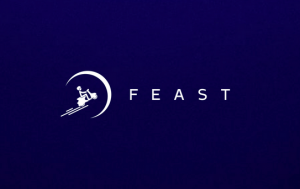
Emerging trends for the best jobs of the future see vast changes and big opportunities ahead for the technology sector. Skilled-up candidates will be in demand for exciting and challenging career opportunities in areas like Cyber Security, IoT and Ai.
So, what’s in store for 2018, 2019 and beyond?
Cyber Security – the new battlefront
According to recent annual surveys by Telstra, almost 60 per cent of businesses experienced at least one disruptive security breach per month in 2016, compared to just 23.7 per cent the previous year.
From a national security perspective, the attacks themselves (on government departments, corporations and businesses) are reason enough for concern. Couple this with the mass exodus of IT expertise from Australia in search of greener pastures abroad, and it’s no wonder there’s talk of anxiety in the media.
But, for the emerging job market in Australia, the news gets better:
Traditionally the bane of governments, defense departments, security agencies and large multi-nationals, cyber-attacks are trending downwards to the SME sector. Shifts away from cash transactions and paperwork to cloud-based accounting and data management leave them open to unprecedented breaches online.
With over 2 million SMEs in Australia, the opportunities for IT security candidates and graduates are abundant, to say the least. The skills shortage is widespread, with advertised positions ranging from entry-level security analysts, who typically earn around $75,000, to software engineers and IT managers on six-figure salaries. These in-demand professionals will see massive opportunities in the coming years.
IoT and AI
The Internet of Things (IoT) will be the next global paradigm shift. It’s projected to be even bigger than the Industrial Revolution, more revolutionary than the Internet and forecast to affect or disrupt almost every industry sector, everywhere. That’s a big call. Some sectors and organisations are better placed to benefit from, and accommodate, the changes it will bring. Telcos are particularly well-suited to adapt and profit from this generational shift as they are already processing staggering volumes of data and the performance of their networks will be the lynchpin of the IoT.
As we move quickly towards a world where corporations having buildings, machinery and assets connected to the web, guaranteeing the security and capacity of these data networks will be in the hands of Telcos to push the revolution forward. As such, Telcos are set to be big beneficiaries of IoT and some of the biggest employers of future data experts.
AI
As for Artificial Intelligence (AI), given the river of money and resources IBM (Watson) Google (Home) and Amazon (Echo) are committing to the effort, the hype would appear to be real.
In Australia, banks have millions of customers they need to engage, retain and nurture, giving them the desire and wherewithal to bring the very latest technology to bear in order to succeed.
Take UBanks’ recent launch of ‘Robochat’. This is an automated virtual assistant designed to not only answer questions posed by prospective home loan applicants, but programmed to actually ‘read’ and respond to customers based on their mood. They’ve even humanised him by throwing some humour in the mix, with tongue-in-cheek responses like:
Q: How much does a hipster weigh?
A: An Instagram.
Ha!
With innovations like Robochat leading the way, the banking sector is just one industry where AI is presenting massive opportunities for those willing to chase them.
Those believing that AI is going to do us all out of a job can take comfort from the latest delay in the launch of NDIS’ virtual assistant, “Nadia”. Aiming to help people navigate the National Disability Insurance Scheme (NDIS) the government has stalled on the project. It was reported by the ABC that “Nadia’s 12-month “traineeship” never started…they fear the census and Centrelink ‘robo-debt’ debacles took their toll on government-wide appetite for risk”. Source. So, the likes of Nadia (even with the voice of Oscar winner Cate Blanchett behind her) won’t be taking our jobs in the immediate future!
Just as the mass production of the motor car saw a decline in the demand for horse shoes, mainstream media may lament the rise of technology with predictions of crippling job losses due to robotics and automation. But, as technology has done ever since Ford first started manufacturing the Model T in 1908, the technology jobs market will always be an exciting one of growth, change and progression.
